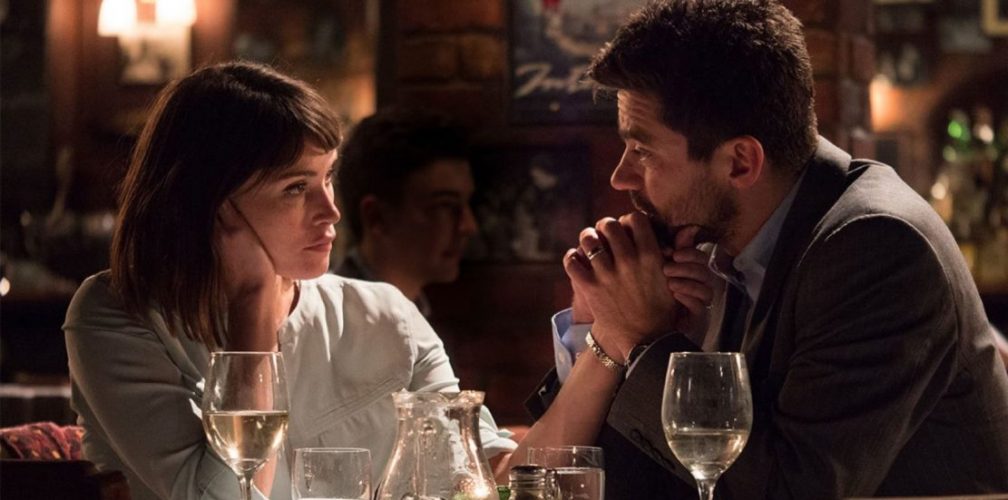| Worth seeing: | to witness a selfish and irresponsible response to the dissatisfaction of suburban family life |

| Director: | Dominic Savage |
| Featuring: | Dominic Cooper, Gemma Arterton, Frances Barber, Jalil Lespert, Marthe Keller |
| Length: | 101 minutes |
| Certificate: | 15 |
| Country: | UK |
| Released: | 3rd August 2018 |
WHAT’S IT ABOUT?
To the outside world, Tara (Gemma Arterton), Mark (Dominic Cooper) and their kids seem to be a typical, middle-class, comfortable suburban family; a nice house in a safe neighbourhood, a traditional Dad goes out to a stressful job and likes to relax when he gets home, Mum takes the kids to school each morning, looks after the house during the day and is just a little bit more tired than he is come bedtime.
But under the surface, Tara has been growing increasingly frustrated and miserable with her unsatisfying life. As she struggles to keep it together, she decides to enrol in a course in town – Mark is a bit dubious, but if it’ll make her happy, he’ll support her.
But it doesn’t make her happy enough and before long, after what begins as a somewhat hum-drum argument, Tara simply packs a back and takes off, leaving a stunned Mark to pick up the pieces of their family life.
WHAT’S IT LIKE?
It’s very difficult to know what to make of this film. It’s selling itself as the story of a put-upon woman who needs to “escape” her meaningless existence in a patriarchal world.
But she’s not put-upon – she’s a mother. Mothers have responsibilities. She doesn’t have anything more to do than any other mother-of-two. She’s not treated any worse than any other mother and wife by her husband – he’s a little more enthusiastic about bed-time activity than she is and a bit clueless about her lack-of-interest, but she never thinks to tell him.
Rather than identify with Tara and feel sorry for her, many viewers will simply find her petulant behaviour hugely selfish and completely irresponsible.
This behaviour could possibly be defended – or at least explained – by depression, but there’s no mention or suggestion of that here, making her an unsympathetic protagonist and making her loving – if far-from-perfect – husband all the more like the hapless victim of these circumstances.
Some might crow “that review has been written by a man who knows nothing about what it’s like to be a mother” – but whatever anyone might think about whether Tara’s dissatisfaction is justified or understandable, her response to it is certainly neither.
There could – perhaps – be a fantasy element here; the suggestion might be that this is what a miserable mother might dream of doing – in much the same way as TV’s Curb Your Enthusiasm shows Larry David doing and saying things that many of us might wish we could but cannot because of the constraints of society – but that knowingly breaks away from reality in a way that this film is trying to resist.
This dark marital drama sheds no light on family difficulty or depression and without giving anything away about the ending, it’s clear that her decisions don’t result in happiness anyway, which makes you wonder what her rebellion – her escape – was all about anyway. If escape doesn’t make an unsatisfied woman happy, what’s the message of the film?
